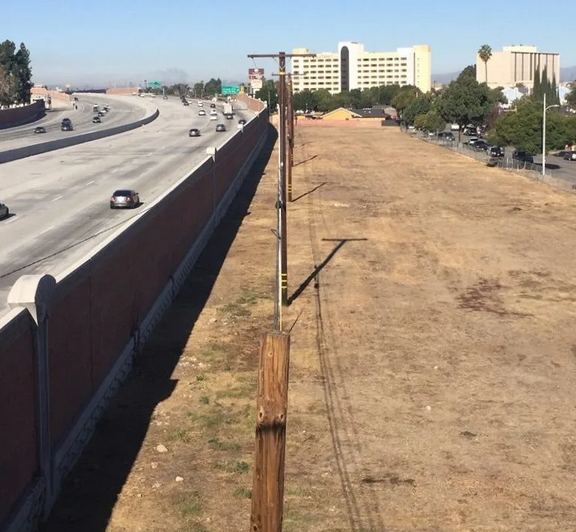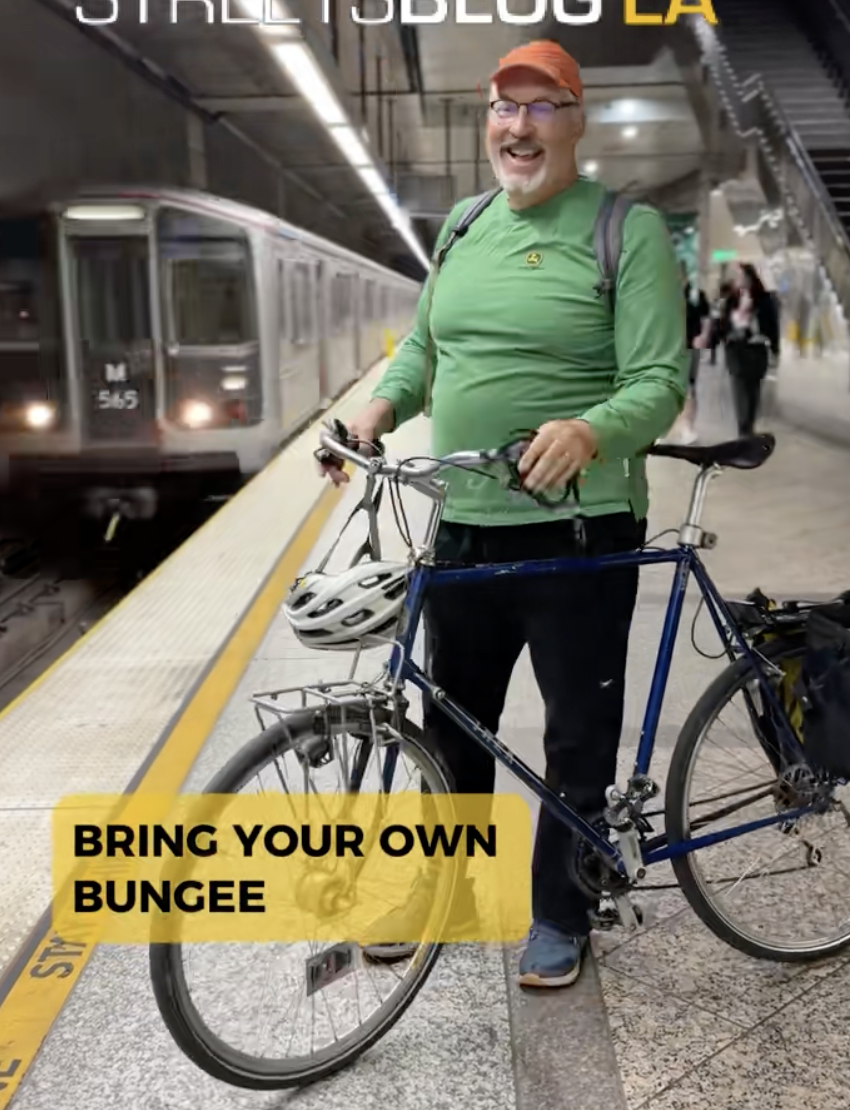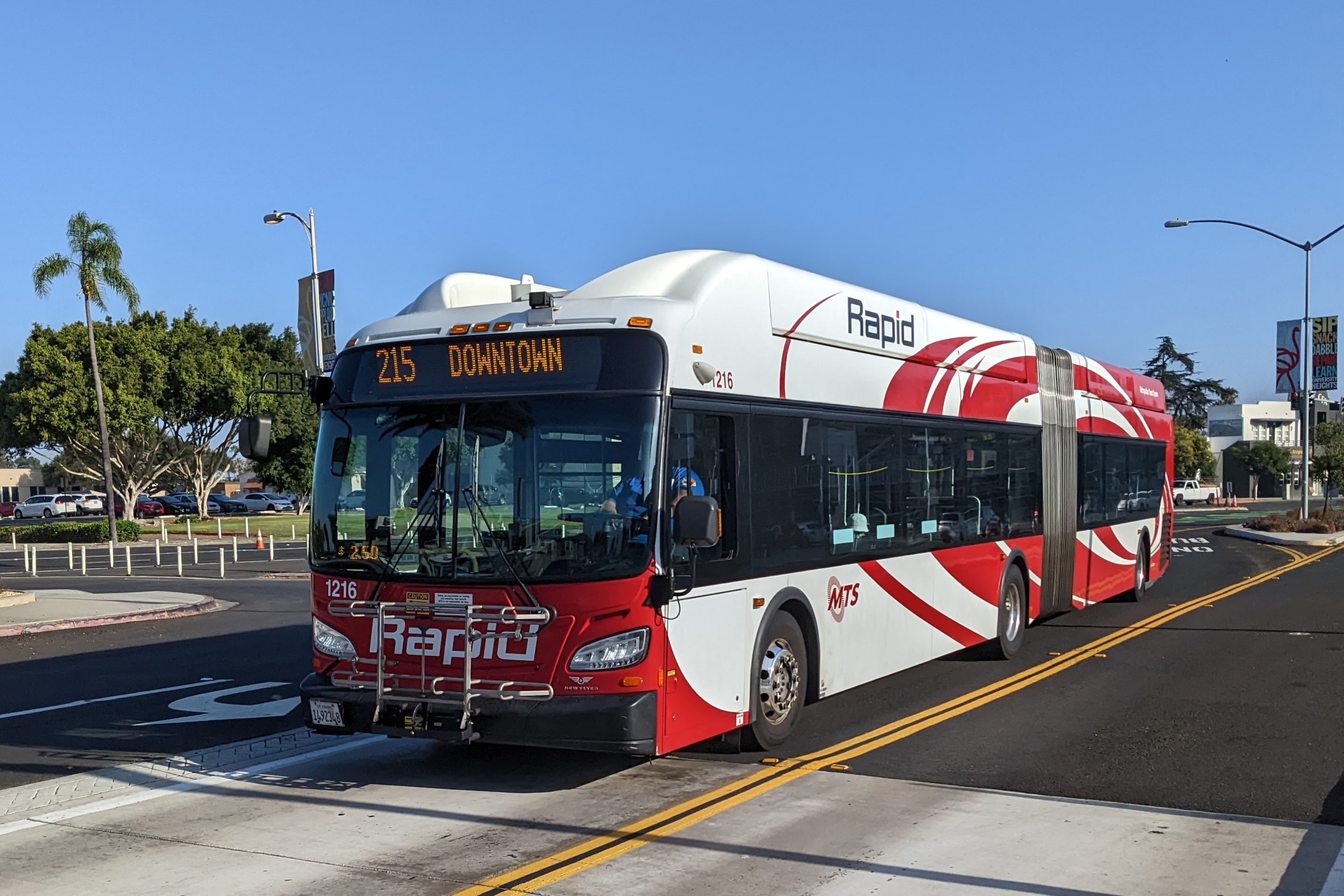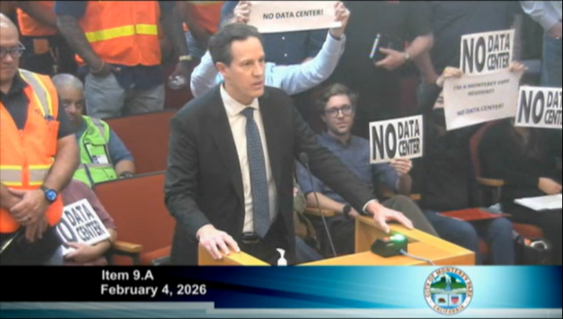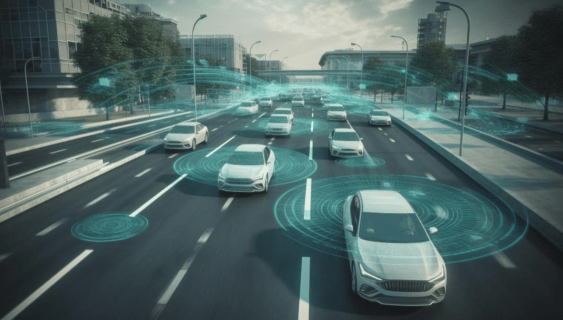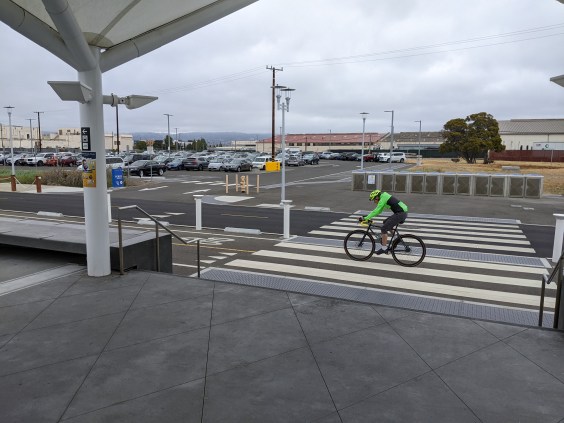A recent L.A. Times article touched on state efforts to bring California's transportation investments in line with climate and equity goals. Unfortunately, the story focused on opposition from organized labor to one such effort - a bill, A.B. 1778, that would prohibit freeway expansions through low-income communities.
The Times article included a couple of stunningly awful quotes.
Andrew Meredith, "president of the State Building and Construction Trades Council of California, which represents 450,000 construction workers," insisted that freeways are too important to stop expanding them. He told the authors that "the road network must continue to grow to support drivers and the state’s economy."
“The idea that we’re displacing people that are living close to the highways, this is natural in the terms of the way development happens,” Meredith said. “Infrastructure sometimes has to come first. If we made decisions completely based on the impacts on relatively small amounts of people, nothing would ever get done.”
Really.
Meredith said that "displacing people... is natural."
And he sure wasn't talking about displacing rich white people. He's talking about Black and brown families. One can't help but wonder how different his story might be if it were his family home in the crosshairs of freeway planners.
Also, "relatively small amounts of people" feels misleading. Caltrans' 105 Freeway construction demolished more than 8,000 homes in South Los Angeles. Metro and Caltrans demolished 423 parcels - mostly homes - on their currently under-construction widening of the 5 Freeway in southeast L.A. County. In 2020, Metro and Caltrans announced plans to demolish hundreds of homes/apartments/businesses, mostly in Downey, in order to widen the 5 and 605 Freeways, though that plan was later paused. The Times found that freeway widening mega-projects in three decades in just five states demolished 1,254 homes in non-white neighborhoods. Few of those homes represent just one person; they are families. The numbers of displaced people is staggering.
That Meredith thinks it's reasonable to make such tone-deaf remarks is alarming. One of the Times authors, Liam Dillon, called out the quotes on Twitter. Dillon has done a great job bringing attention to equity and displacement issues taken for granted as part of freeway expansion.
Freeways have an on-going legacy of displacing people in Black and Latino neighborhoods.
— Liam Dillon (@dillonliam) May 6, 2022
The head of the State Building and Construction Trades — one of CA's most powerful lobbies — says road expansion remains necessary and displacement is "natural".https://t.co/XvLtIP3sm1 pic.twitter.com/yzwEqQ8XRV
The perspective voiced by Meredith is, unfortunately, the "way we've always done things." That is, the racist way America has built freeways for more than fifty years - and the racist way that America has always treated its BIPOC communities. It is also one of the reasons Los Angeles has a deep housing crisis and perennially dirty, toxic air - and why Southern Californians feel that have so few decent transportation options.
Environmental justice advocates have been resisting harmful freeway expansions for decades. East Yard Communities for Environmental Justice (EYCEJ), for one example, has been fighting threatened displacements from the expansion of the southern stretch of the 710 freeway through Southeast L.A. County, from East L.A. to Long Beach. In the early 2000s Caltrans pushed to widen the 710 from eight to sixteen lanes, demolishing Black and brown homes and businesses, and worsening diesel pollution in one the most polluted parts of the nation. Because EYCEJ and their partners courageously resisted 710 expansion plans for decades, Caltrans and Metro recently decided to discard those plans (that they already spent tens of millions of dollars on) and now say they are going back to square one to pursue a new, more equitable multi-modal investment strategy.
"Last year felt like a year of progress in this realm - of coming to understand that transportation planning cannot continue in this form," Laura Cortez of EYCEJ told Streetsblog. She was referring in part to multiple efforts at the state and local levels to shift the conversation on transportation planning and investments towards a more sustainable and equitable system - efforts Streetsblog has been writing about for a long time.
"This [Meredith's] business-as-usual quote is the same rhetoric we've heard for years, but we felt we had moved past it. We are not surprised, but it is still disheartening that [the Trades Council] is not open to other possibilities."
Assemblymember Cristina Garcia, the author of the bill under discussion, voiced a similar sentiment in a statement provided to Streetsblog:
It is disappointing, to say the least, that the Building Trades would say that the displacement of predominately poor brown and black communities is “natural.” If we are truly going to govern with equity lenses we must stop the seizure of family homes in poor brown and black communities, and acknowledge that the freeway system since the 1950s has been used as a tool to further disenfranchise low-income communities and communities of color like mine.
I look forward to working with the Building Trades on our common goals of creating good quality jobs that don’t perpetuate biased policies. It is imperative that the resources, money, and time consumed by the discussion of freeway widening are reallocated to completing public transportation projects. This creates good quality jobs and helps make communities healthier while keeping people in their homes.
Californians are living with the results of having that attitude, expressed by Meredith, rule over every planning decision. Cars, and pavement for storing and moving cars, dominate every aspect of the California cityscape. There is nowhere one can get away from cars. Most people don't even know how to imagine a different kind of place, or a different way of getting around.
So many homes have been demolished to make more room for cars over the last half-century-plus, with so little consequence to the people who decided that made sense, that many don't even notice the absurdity of it. Californians let leaders and planners run communities over with their "logic." Communities accept cars everywhere in neighborhoods. Families live with speeding traffic zooming through residential areas. Businesses live with drivers speeding through commercial districts. Californians who can afford to just buy a car and join the melee, because the car-dominated landscape has foreclosed other ways of getting around.
Do not misunderstand. Cars are important, and useful. But it was not necessary to build the world in such a way that cars have become the only rational travel choice for most people. It was not necessary to give over so much space, nor to give up safety and clean air - nor so many homes.
This "idea" that displacement is the price of progress is decidedly not, as Meredith put it, "natural." It is abusive, irresponsible, and demeaning. It destroys people's lives and dirties the air and wrecks the planet. It adds to what has become a dire housing crisis for many, many people. It is explicitly racist - in the present tense, not just in some distant, unenlightened past era when freeways were purposely planned to break apart low-income communities that white people didn't want to have around.
Meredith even went on to claim that A.B. 1778 would harm low-income residents living near freeways, arguing that "its passage would hurt their commute times." Though it is a somewhat common argument advanced by pro-highway folks, including by L.A. Metro, freeway widening does not advance equity. It's very clear, and has been for a long time, that making freeways wider does not solve congestion, but worsens it. Freeways privilege drivers over people who can't afford cars. Benefits certainly do not accrue to families who have been forced out of their homes.
Clearly the Trades Council is used to the job creation benefits of big freeway expansion. But what about other great construction jobs? California high-speed rail construction has created thousands of great construction jobs centered in the long-impoverished Central Valley. Green New Deal plans propose massive construction of green infrastructure - rail, solar, water, and energy infrastructure, all supporting a healthier, more sustainable future.
Mr. Meredith - please don't assume that building unhealthy freeways is the only way to go. Your laborers are very much needed in building the new healthy, just California that visionaries like Assemblymember Garcia and EYCEJ's Cortez are pushing for.
